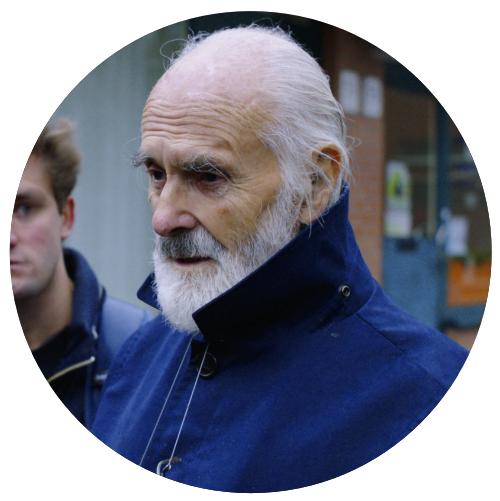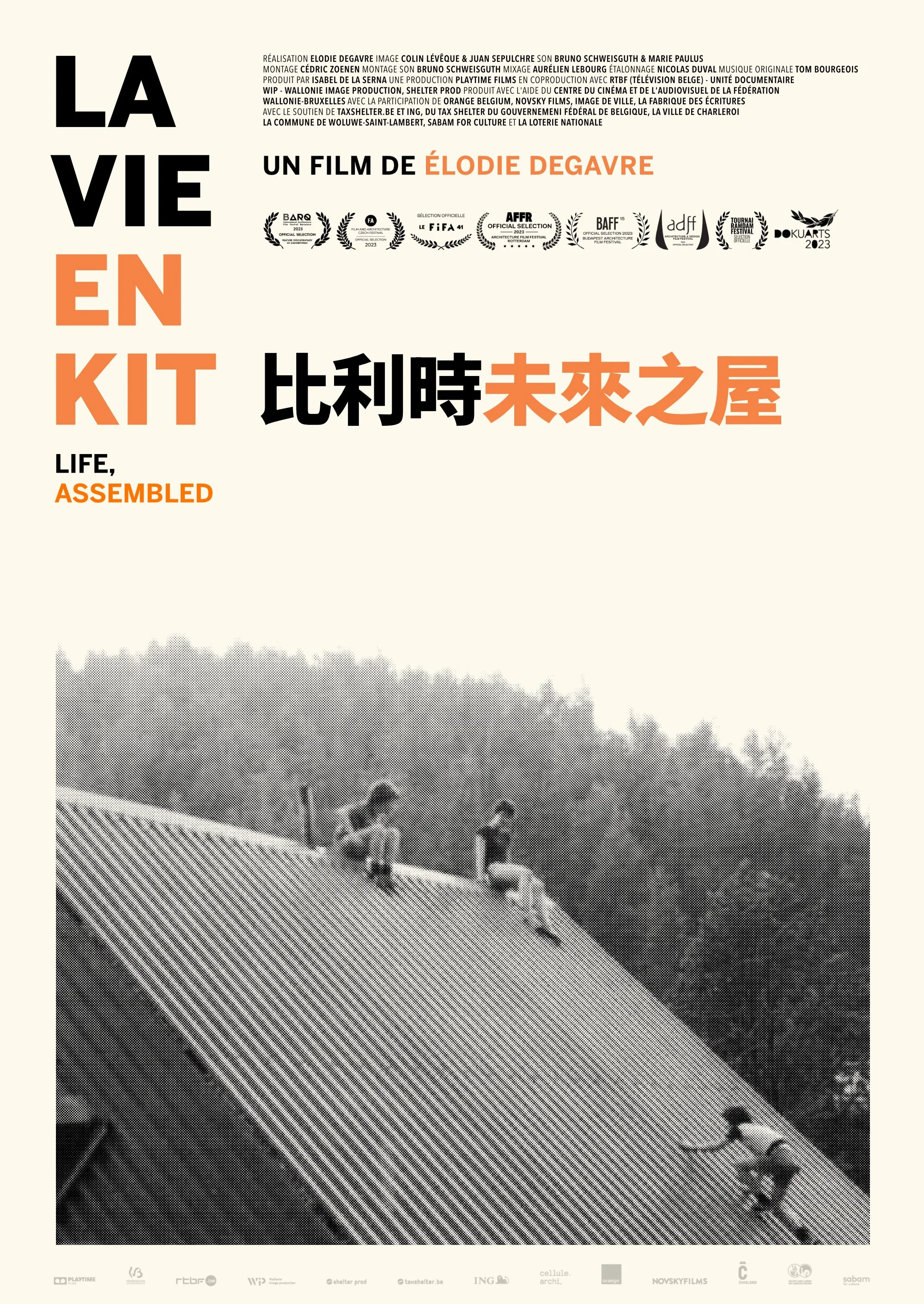LifeAssembled
A documentary on Kit houses in Belgium.
A city of steel that's causing a lot of talk in the neighborhood. Japanese houses designed by their future buyers. A building site in kit form entrusted to students. In Belgium, three architects and a handful of adventurous inhabitants are willing to make their utopia a reality : housing in kit form, affordable to all!
A human and architectural adventure that has been driving them for more than 50 years. What remains today of their houses of tomorrow?
電影介紹:
《比利時未來之屋》是一部在講比利時的組合屋建築設計的紀錄片。
一座讓鄰居們議論紛紛的鋼鐵城市、由未來屋主親自設計的日式住宅、由學生自行設計的宿舍建築。在比利時,三位建築師和一群勇於嘗試的居民,決心將他們的烏托邦化為現實:以組裝式的住宅,實現人人都能負擔的居住夢!這是一場持續超過50年的人文與建築冒險。如今,他們當年的「未來之屋」還留下了什麼?
該片榮獲「布魯塞爾藝術電影節觀眾獎」及「里耶卡歷史電影節最佳劇本獎」,並記錄下比利時建築師的經典住宅實驗,包含比利時魯汶大學(University of Leuven)所設計的醫學院宿舍(Medical Faculty Housing),讓我們看見不同世代對於居住正義的追求與實踐。
導演介紹:
導演Élodie Degavre 是一位建築師與電影導演,現居布魯塞爾。她畢業於拉康布高等建築學院(Institut Supérieur d’Architecture de la Cambre),曾在多間建築事務所(如V+ 和 A Practice)擔任專案負責人,並與比利時建築雜誌《A+ Architecture》合作,自 2022 年起擔任編輯委員會成員。她同時也是《Architecture in Practice》編輯委員會的成員,並多年參與國際專業與學術評審工作。
她現任教於魯汶大學(UCLouvain)建築學院國際碩士課程以及馬斯垂克建築學院(Academie van Bouwkunst Maastricht),同時也是一名研究者。她的博士論文探討電影作為一種感知性的研究方法,並在創作紀錄片《La vie en kit 比利時未來之屋》時實踐此方法。該片榮獲布魯塞爾藝術電影節觀眾獎及里耶卡歷史電影節最佳劇本獎。
電影背景:
1970 年代的比利時處於相當混亂的狀態——魯汶的學生運動、煤礦關閉,以及對布魯塞爾無序都市化的抗爭正如火如荼。同時,一場前所未有的經濟危機也正悄然逼近,若人們要「以不同的方式生活」,就必須儘速找到解方。
然而,與鄰近國家不同,比利時並不鼓勵在住宅領域進行實驗。在這樣的背景下,我們更應理解 Lucien、Jean 與 Paul 的投入意義:他們夢想設計出一種輕巧住宅,其構件能夠被大量生產,並可用無數方式組裝起來,使得人人都能以較低成本實現居住的可能。
片中建築師介紹:
Lucien Kroll 盧西安·克羅
一位比利時建築師。他與妻子 Simone Kroll 共同創立了「Simone & Lucien Kroll 建築工作室」。早在 1960 年,他們就被視為參與式建築(participatory architecture)的先驅——這是一種諮詢性與沉浸式並重的建築設計方式,強調與使用者共同塑造環境。
克羅最為人所知的作品,是他為比利時魯汶大學(University of Leuven)所設計的醫學院宿舍(Medical Faculty Housing)。這些建築引發了廣泛的爭議,由於刻意採用參與式設計過程,讓使用者共同參與設計,這些建築呈現出片段的、即興的、拼貼般的外觀,與鄰近龐大且單調重複的醫院建築,形成了涇渭分明的對比。儘管這些宿舍建築評價兩極,卻也成功地激發了人們對於住宅設計的多元思考,進而讓建築設計更加豐富有趣。克羅這種「反其道而行」的設計策略,為當代建築設計注入了一股活力,為制式化的建築美學帶來新的可能性。他一生完成了超過 100 個建築項目。
Jean Englebert 尚·安格勒貝爾
比利時建築師,曾於康乃爾大學及多個國家擔任客座講師,於1967年創立列日大學的 CRAU(都市與建築研究中心)。Jean 完成許多建築作品,其中多項獲得肯定。1998年榮獲日本建築學會(Architectural Institute of Japan)評審獎(Appreciation Prize)。
早在1960年代初期,Jean 就開始關注日本。在那裡,建築以木材為材料,展現出精緻而輕盈的風格;而木材同樣也是他家鄉阿登地區(Ardennes)盛產的資源。當地伐採大量雲杉木(spruce),經過規格化處理後,主要用於支撐比利時礦坑的坑道。然而,當鋼鐵產業陷入危機,這種用途受到威脅時,Jean 便開始思考是否能將這些木材轉用於建築領域。
他與木匠 Heini Patze 的相遇,成為關鍵的轉折點。兩人共同發明出一種房屋系統,所有構件皆為預製化,顧客可以從型錄中選擇,甚至自行設計並動手建造自己的房屋。在1970至80年代之間,大約建造了40棟「Patze–Englebert」住宅,但 Jean 始終無法說服市場將這套系統推廣為一種面向更廣泛人口的大規模商品。
Paul Petit 保羅·佩蒂
比利時建築師。1967年,他離開學校前往美國,並發現了美式預製木屋。回到埃諾省(Hainaut)後,Paul Petit 深信從此以後建築應該要「輕盈、乾式、精準」。他在沙勒羅瓦(Charleroi)的工業鄰居引導他找到了實現這個理念的在地材料:鋼鐵!
1975年,他在馬西內勒(Marcinelle)的聖尼古拉區(Sart Saint-Nicolas)落成了一棟原型屋,這為他真正的計畫鋪路:建造一整個由14棟金屬住宅組成的社區。Paul 特別希望未來的住戶能參與設計與施工:「每一棟房子都是任何手作愛好者都能完成的美高模型(Meccano)」。儘管 Paul 極力推廣他的「產品」,卻始終無法說服比利時產業界,因此聖尼古拉區的那棟原型屋也就一直只是原型。
電影入圍與得獎影展:
★ 2022 History Film Festival - Best Screenplay 里耶卡歷史電影節最佳劇本獎
★ 2022 Brussels International Film Festival 比利時布魯塞爾國際電影節
★ 2022 Brussels Art Film Festival 比利時布魯塞爾藝術影展 觀眾獎
★ 2023 Architecture Film Festival Rotterdam (AFFR) 荷蘭鹿特丹建築影展
★ 2023 Budapest Architecture Film Festival 匈牙利布達佩斯建築影展
★ 2023 Architecture & Design Film Festival 美國建築與設計影展
★ 2023 Film and Architecture Czech Festival 捷克電影與建築影展
★ 2023 International Festival of Films on Art (FIFA) 加拿大蒙特婁國際藝術電影節 (全球最大規模的藝術電影節之一)
★ 2023 International Architecture Film Festival Barcelona (BARQ) 西班牙巴塞隆納國際建築電影節
★ 2023 International festival of major current affairs reports and social documentaries (FIGRA) 法國國際重大時事報導與社會紀錄片影展
★ 2023 Tournai Ramdam Festival 比利時圖爾奈「擾動之聲」電影節
★ 2023 DOKUARTS - International Festival for Films on Art 德國柏林 DOKUARTS 國際藝術影像節
劇照:

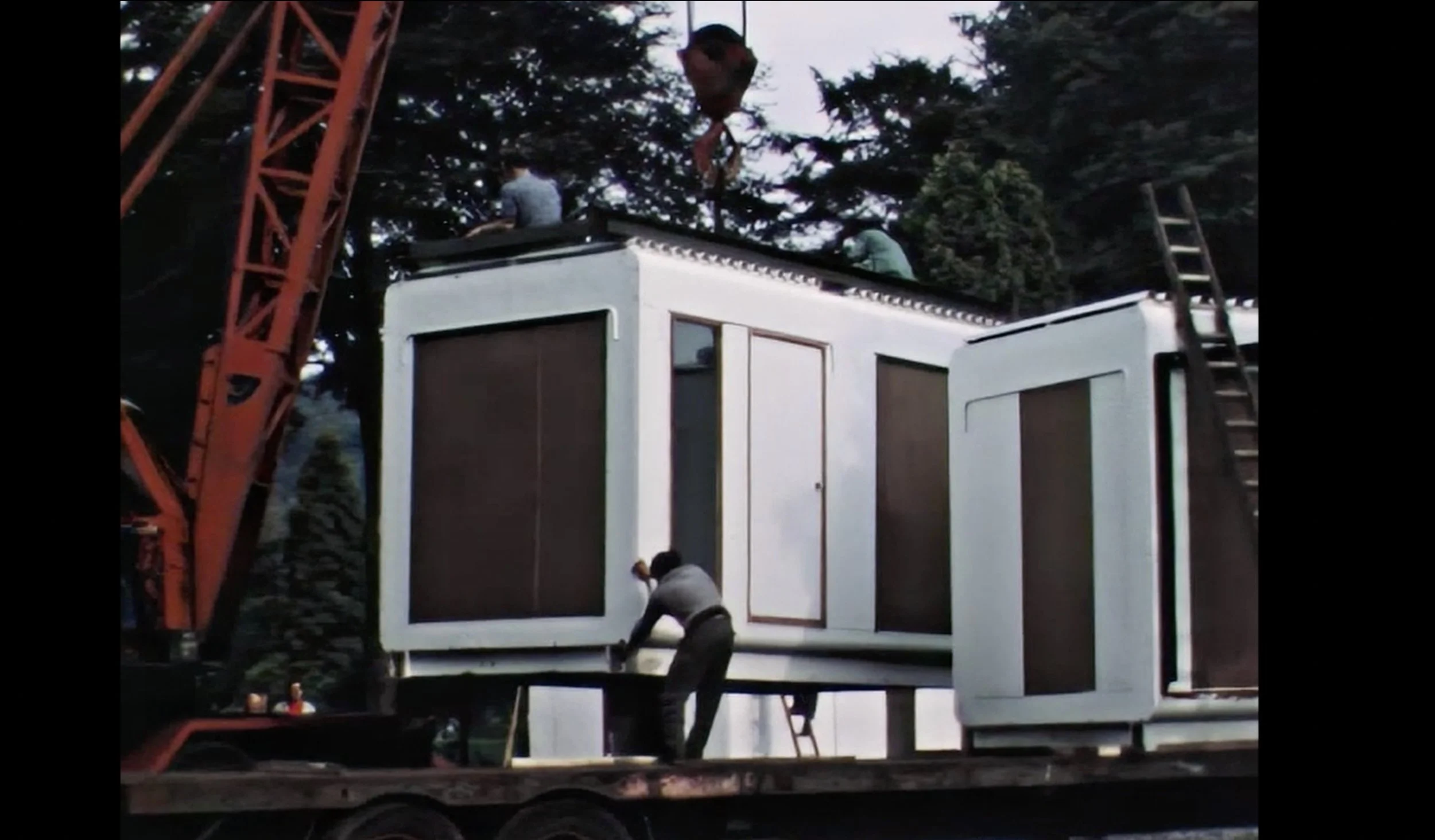
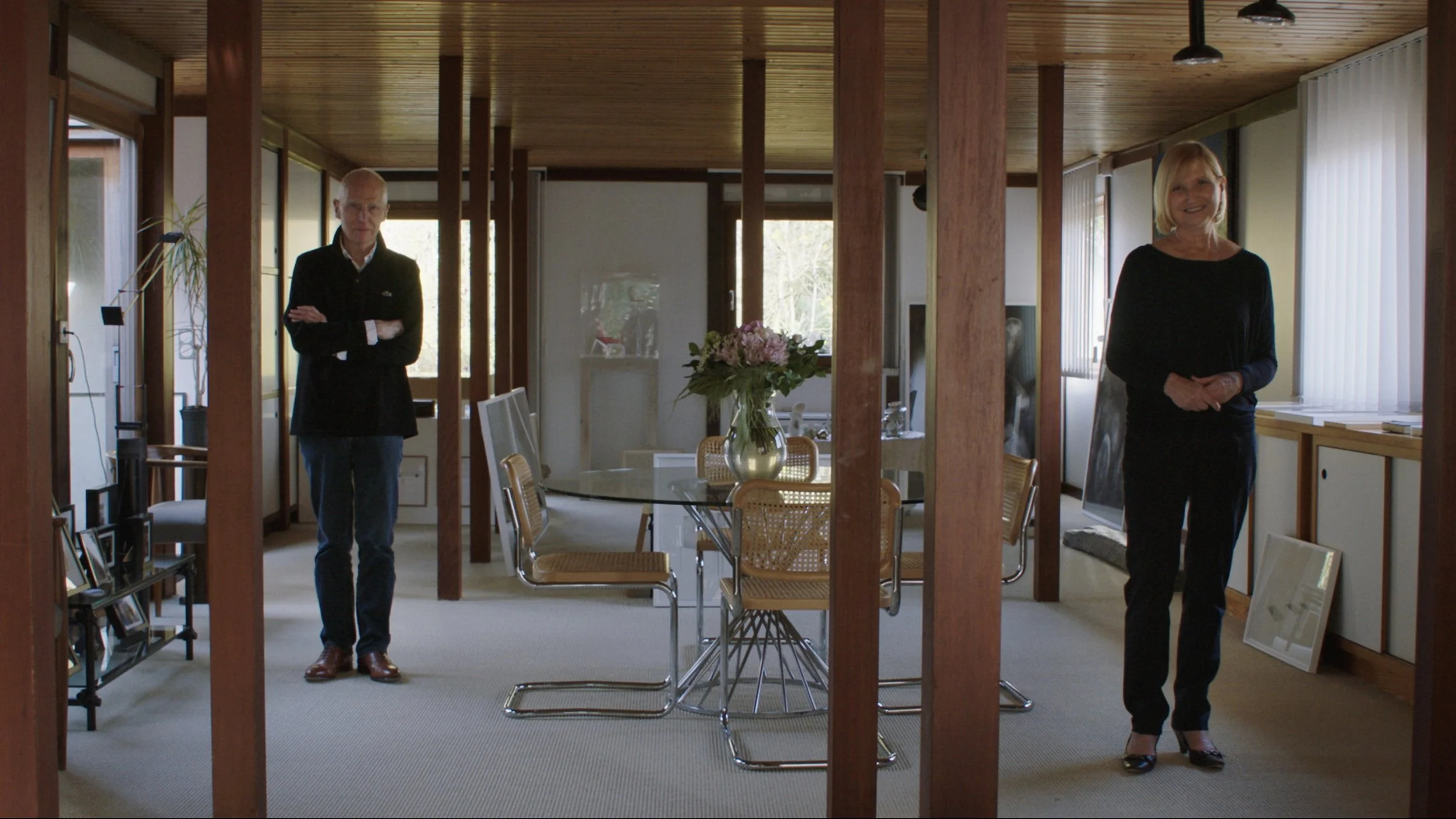

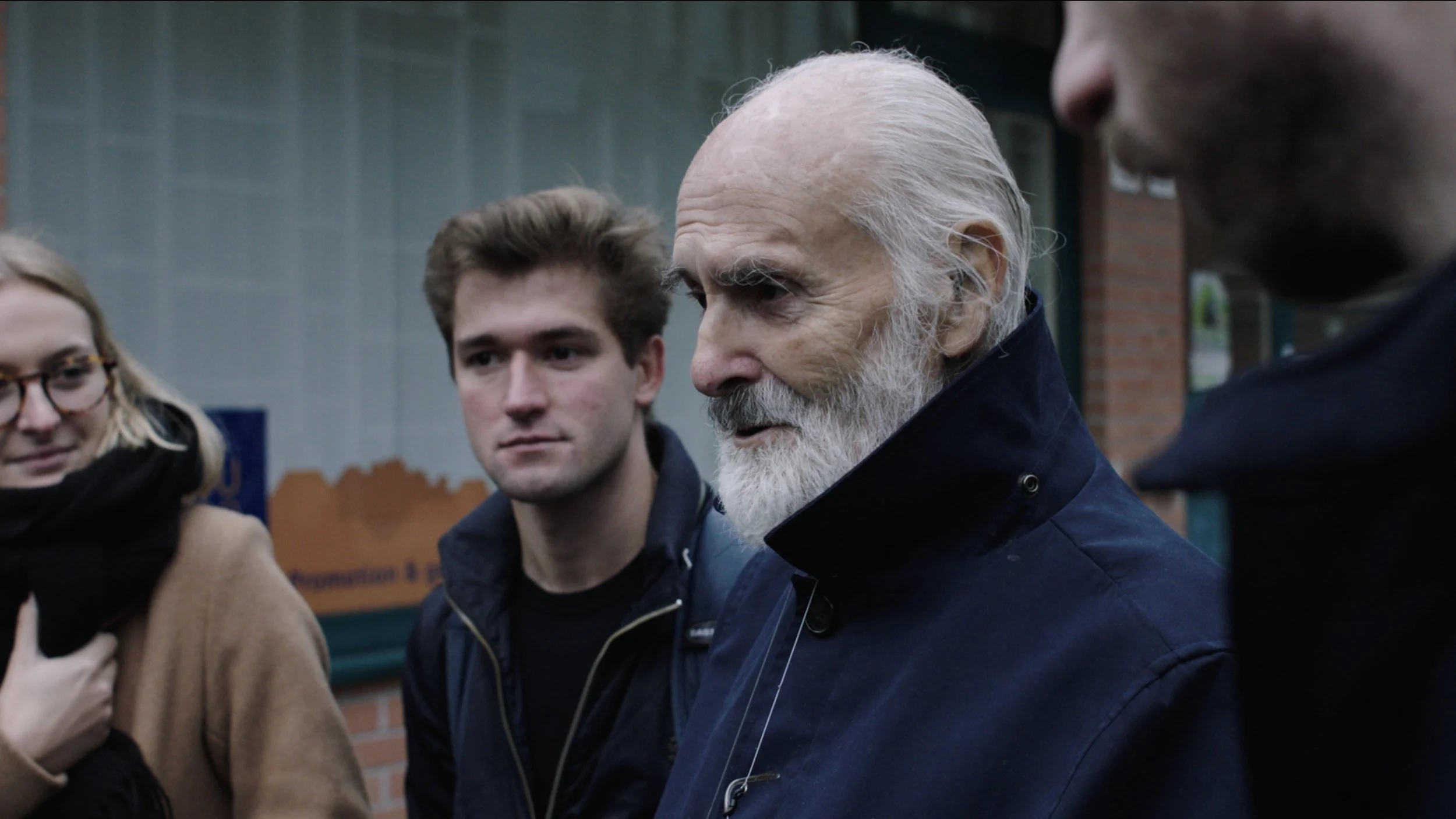
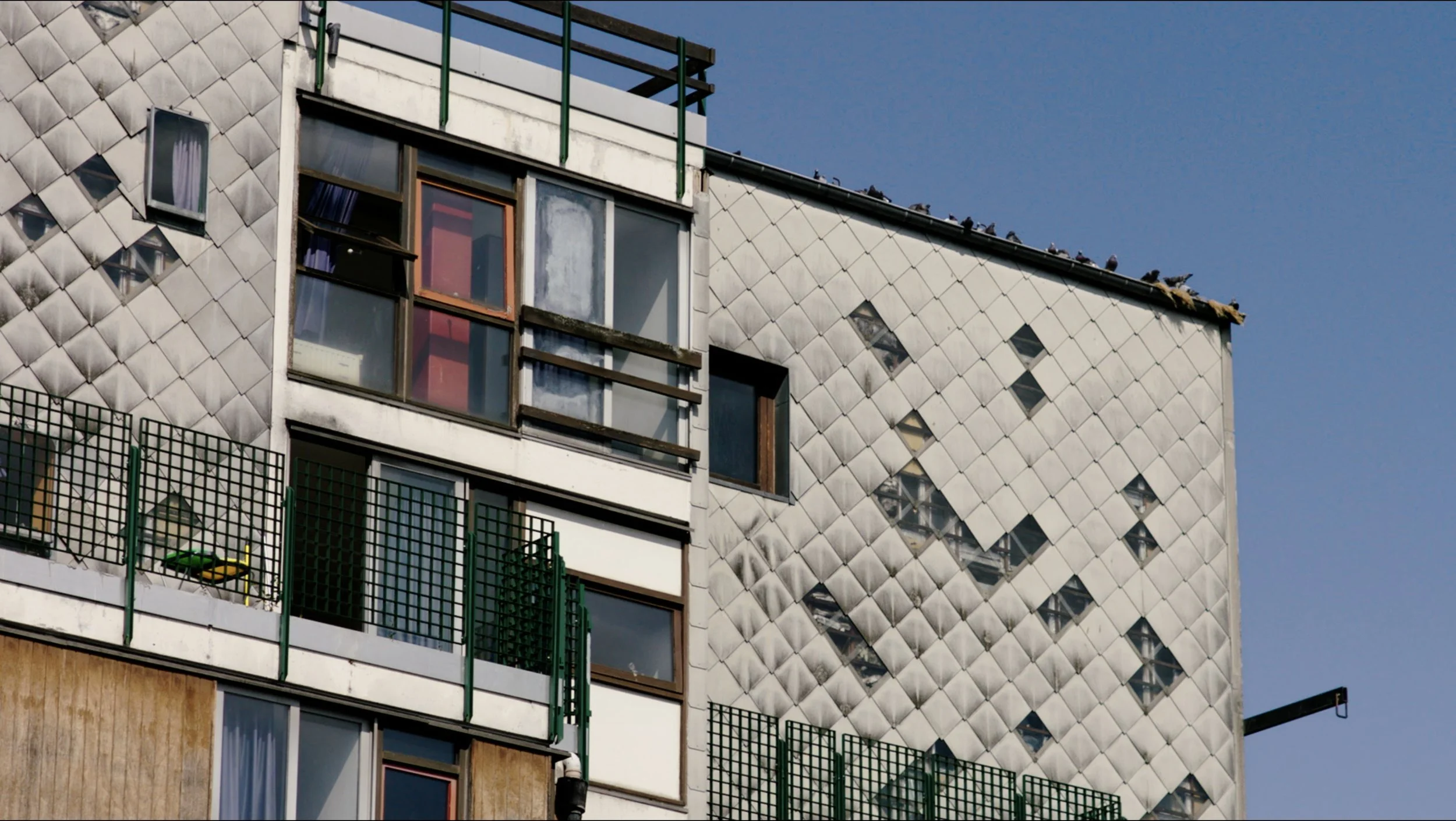
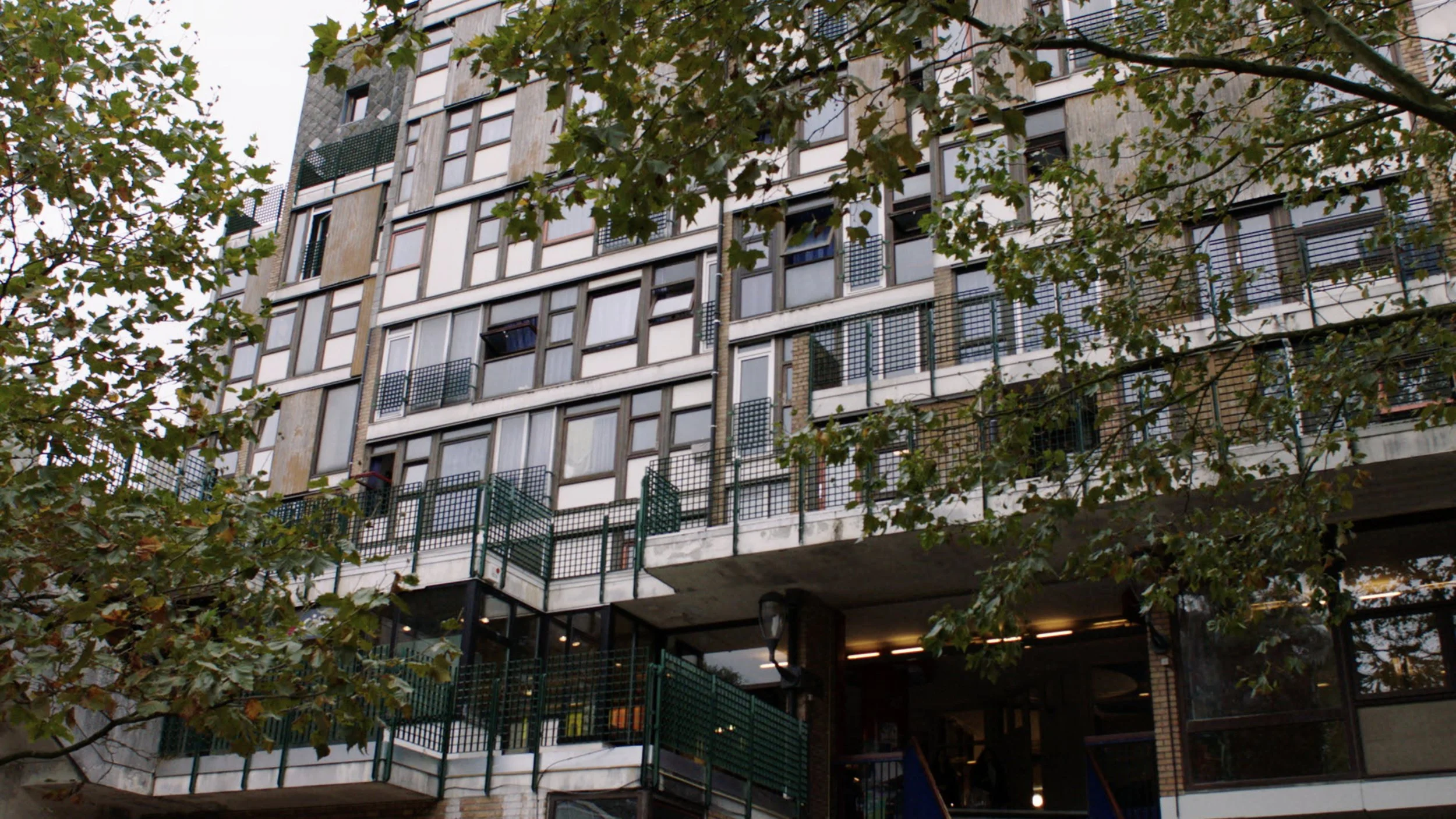

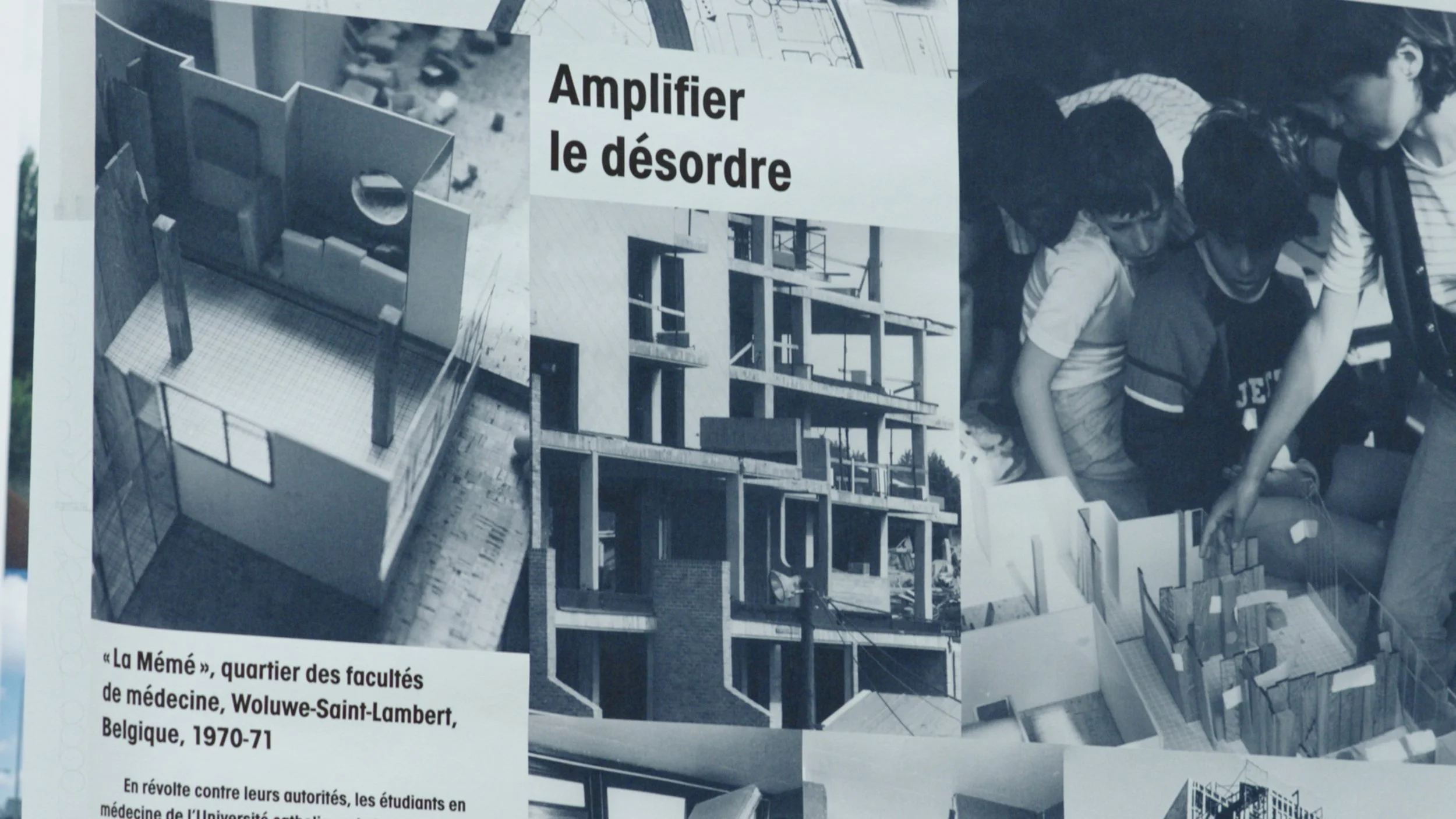
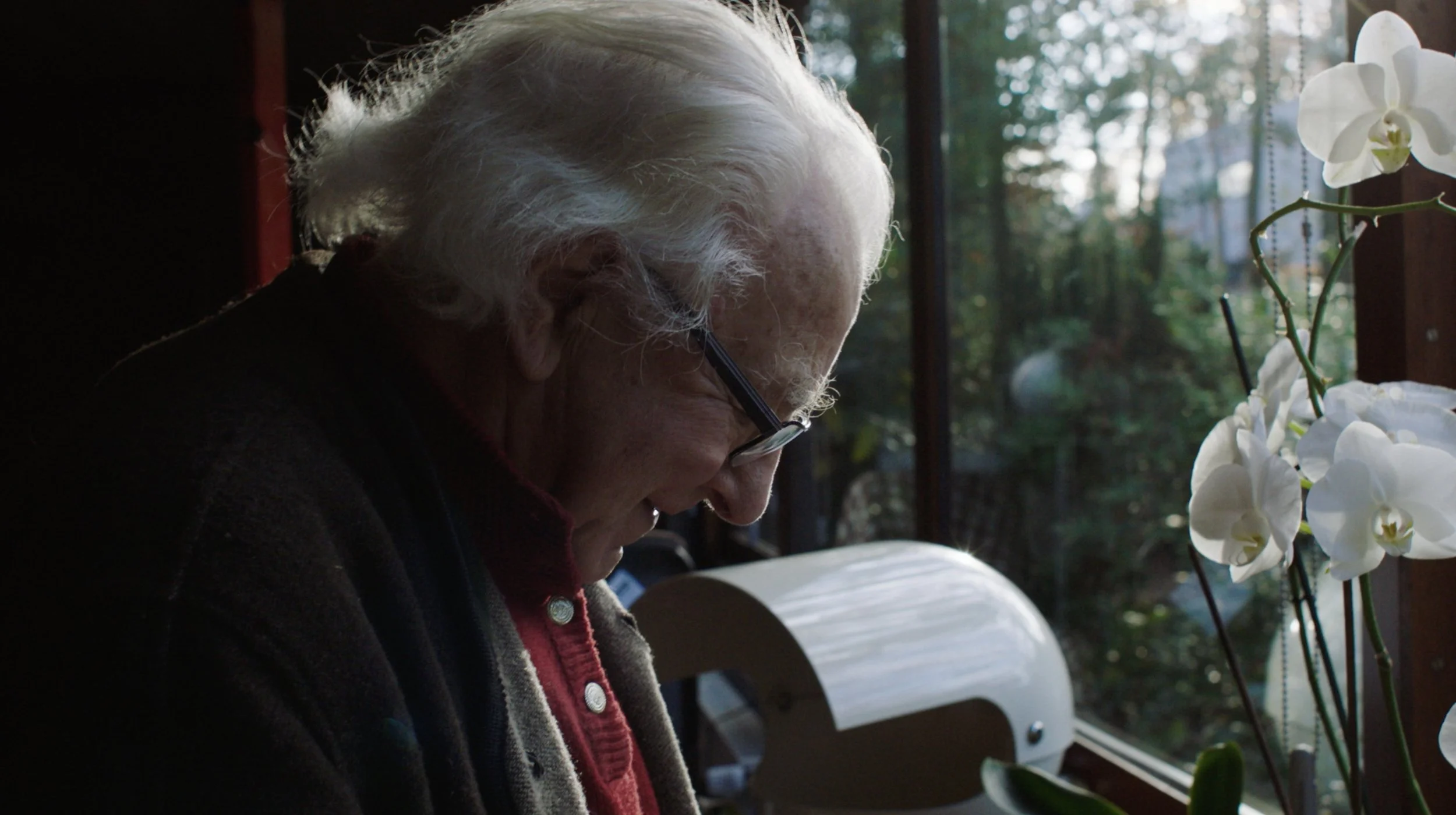

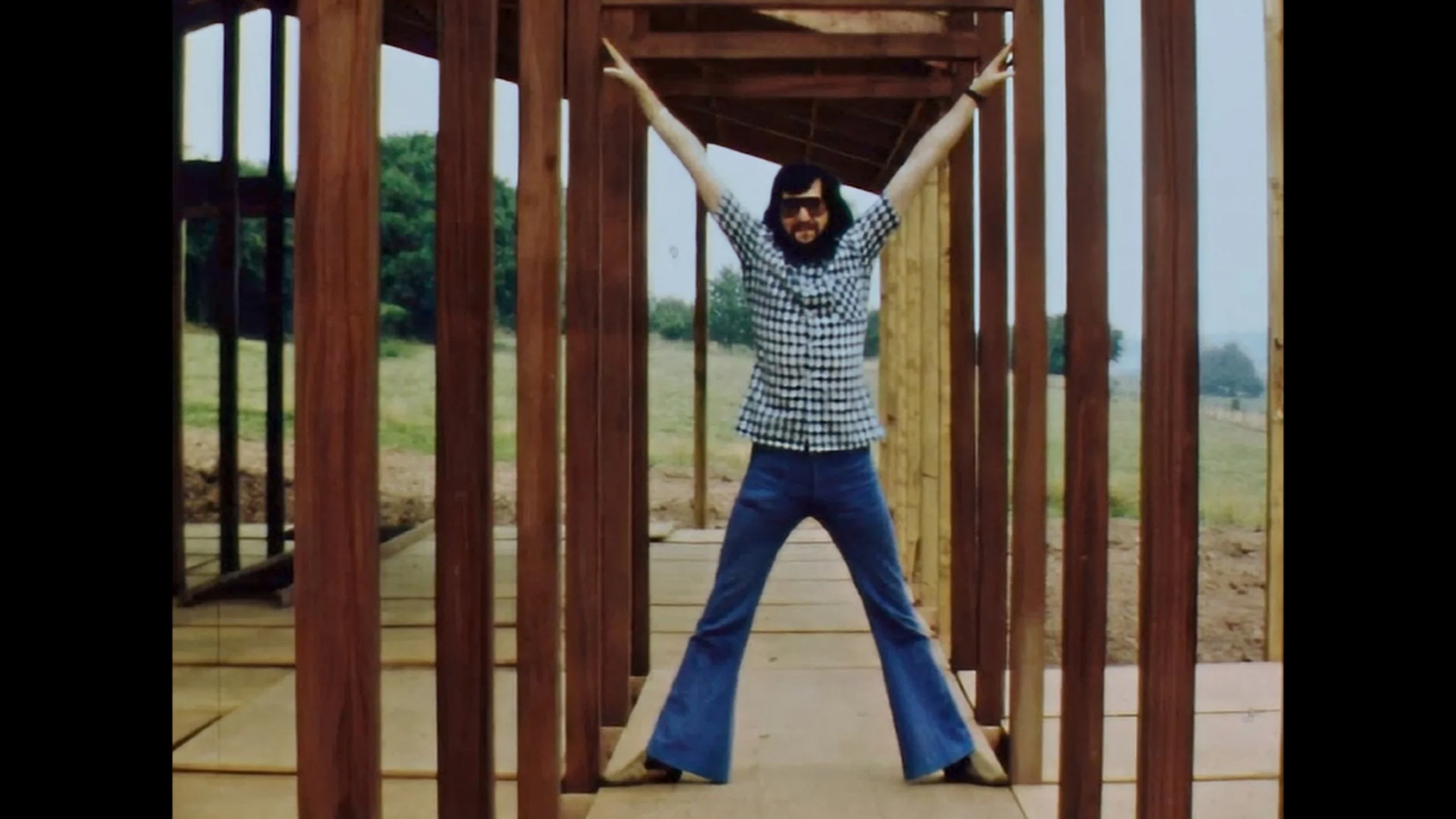

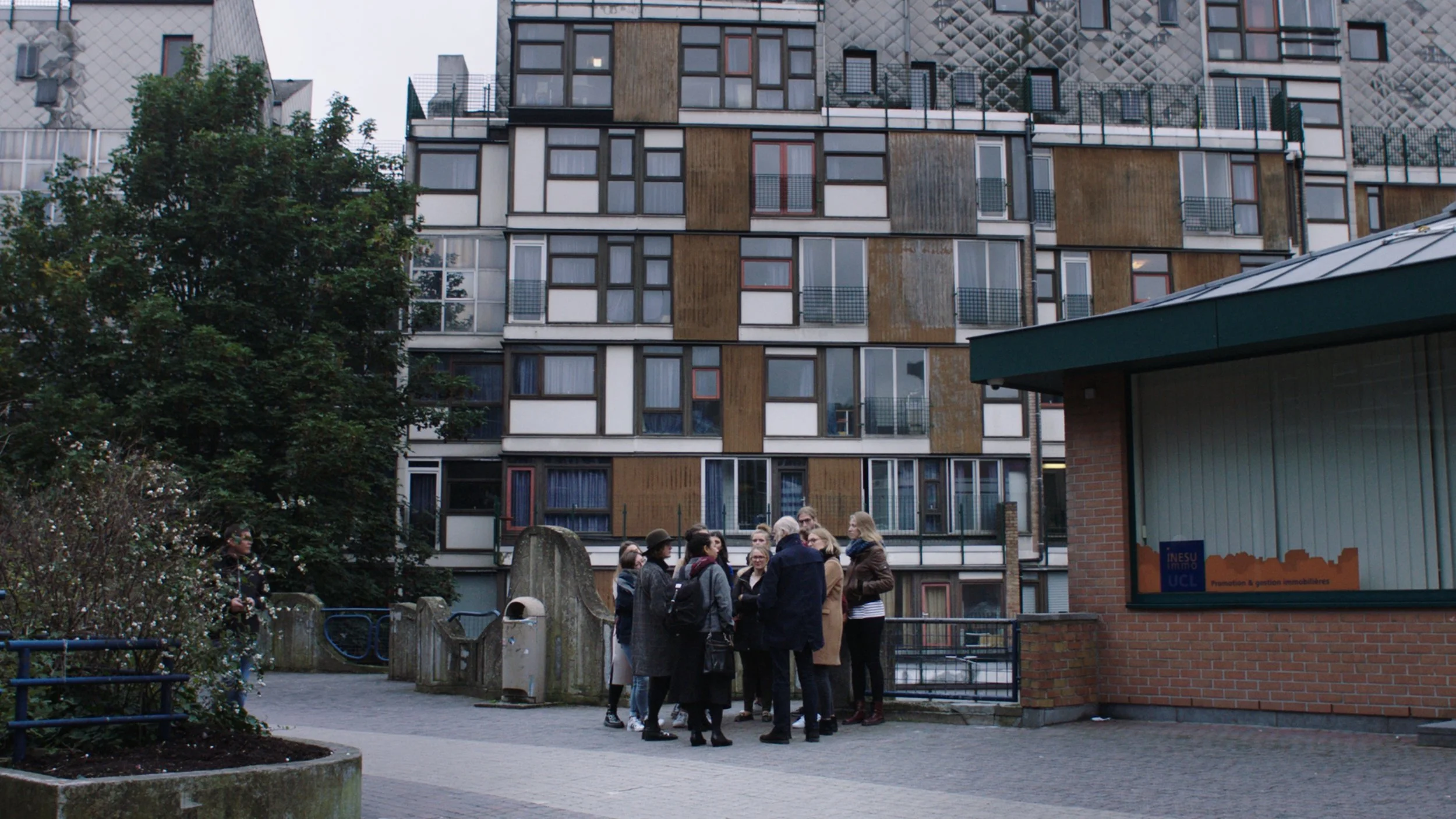


About the movie:
A documentary on Kit houses in Belgium.
A city of steel that's causing a lot of talk in the neighborhood. Japanese houses designed by their future buyers. A building site in kit form entrusted to students. In Belgium, three architects and a handful of adventurous inhabitants are willing to make their utopia a reality : housing in kit form, affordable to all!
A human and architectural adventure that has been driving them for more than 50 years. What remains today of their houses of tomorrow?
Director’s statement:
As I became an architect, I discovered that every building conceals a rich human story, a story worth telling. But the people around me were rather circumspect. To them, architecture was about those ‘beautiful’, those ‘special’ objects you see in magazines. To me, it was obvious that the story of architecture had to be told differently, had to encompass the human story behind it, its imaginative and playful backdrop. Through film, I wanted to change the way people look at architecture. Instead of them thinking, ‘What splendid architecture’ or ‘What a ghastly building’, I wanted people to think, ‘What a story’ or ‘What incredible characters’. My longing to tell a story rooted in architecture materialized when I discovered experimental constructions in Belgium from the late 1960s that are still inhabited today. At the time, the architects Jean Englebert, Paul Petit and Lucien Kroll, along with his wife Simone Kroll, each dreamed of creating a lightweight and adaptable type of housing designed, built, or to be modified by the inhabitants themselves. They were the authors of three utopias, promising prototypes of adjustable architecture accessible to all.Housing in kit form!
Director’s intro:
Élodie Degavre is an architect and filmmaker based in Brussels. She graduated from the Institut Supérieur d’Architecture de la Cambre. She has worked in several architecture firms (including V+ and A Practice) as a project manager and collaborates with the Belgian architecture magazine A+ Architecture, joining its editorial board in 2022. Elodie is also a member of the editorial board of Architecture in Practice and has served for several years on international professional and academic juries.
She teaches in the International Master's program at the Faculty of Architecture of UCLouvain and at the Academie van Bouwkunst Maastricht, and is also a researcher. In her doctoral thesis, she explores film as a sensitive research method—a method she put into practice in creating the documentary La vie en kit, which won the Audience Award at the Brussels Art Film Festival and the Best Screenplay Award at the Rijeka History Film Festival.
Festival selections & awards:
★ 2022 History Film Festival - Best Screenplay
★ 2022 Brussels International Film Festival
★ 2022 Brussels Art Film Festival
★ 2023 Architecture Film Festival Rotterdam (AFFR)
★ 2023 Budapest Architecture Film Festival
★ 2023 Architecture & Design Film Festival
★ 2023 Film and Architecture Czech Festival
★ 2023 International Festival of Films on Art (FIFA)
★ 2023 International Architecture Film Festival Barcelona (BARQ)
★ 2023 International festival of major current affairs reports and social documentaries (FIGRA)
★ 2023 Tournai Ramdam Festival
★ 2023 DOKUARTS - International Festival for Films on Art
法文片名:La Vie En Kit
英文片名:Life, Assembled
中文片名:比利時未來之屋
片型:紀錄片 documentary
片長:1小時12分
出品國:比利時 Belgium
出品年:2023
語言:法語
字幕:中文、英文
台灣總代理:繆思有限公司
導演/編劇 DIRECTOR/WRITER
Élodie Degavre
製片 PRODUCED by
Isabel de la Serna
共同製作 CO-PRODUCED by
Playtime Films /
Wallonie Image Production (WIP)
攝影 CINEMATOGRAPHY
Colin Lévêque
Juan Sepulchre
錄音師 Sound Recoreders
Bruno Schweisguth
Marie Paulus
剪接 EDITING
Cédric Zoenen
Bruno Schweisguth
片中出現 FEATURING
Jean Englebert
Lucien Kroll
Simone Kroll
Paul Pe5t



